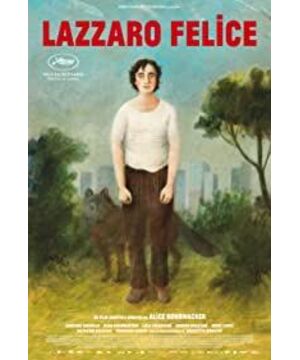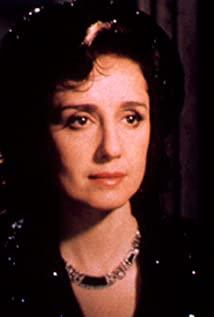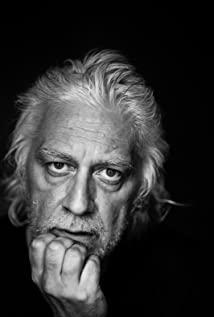[John 11:1] There was a sick man named Lazarus, who lived in Bethany, Mary (Mary of Bethany, now generally considered not the same as Mary Magdalene) and her sister Big village.
[John 11:2] This Mary was the one who anointed the Lord with perfume and wiped his feet with her hair. The sick Lazarus was her brother.
[John 11:3] The two of her sisters sent to Jesus and said, Lord, the one you love is sick.
[John 11:4] When Jesus heard it, he said, This disease does not lead to death, but it is for the glory of God, that the Son of God may be glorified by it.
[John 11:5] Jesus loved Martha, and her sister, and Lazarus.
[John 11:6] When he heard that Lazarus was sick, he stayed in the place where he was staying for two days. [John 11:7] Then he said to his disciples, Let us go again to Judea.
[John 11:8] The disciples said, Rabbi, the Jews are going to stone you recently, are you still going there?
[John 11:9] Jesus answered and said, Are there not twelve hours in the day? A man who walks in the day will not stumble, because he sees the light of this world.
[John 11:10] If he walks in the dark, he will stumble, because he has no light.
[John 11:11] After saying this, Jesus said to them, Our friend Lazarus has fallen asleep, and I will go and wake him.
[John 11:12] The disciples said, Lord, if he sleeps, he will be well.
[John 11:13] Jesus said this about his death. But they thought they were sleeping as usual.
[John 11:14] Jesus told them plainly, Lazarus is dead.
[John 11:15] I rejoice when I am not there, for your sakes, that you may believe. Now we can go to him.
【John 11:16】Thomas, also called Dittus, said to his fellow disciple, Let us also go and die with him.
[John 11:17] When Jesus came, he knew that Lazarus had been in the tomb for four days.
[John 11:18] Bethany was not far from Jerusalem, about six miles.
[John 11:19] Many Jews came to see Martha and Mary to comfort them for their brother.
[John 11:20] When Martha heard that Jesus was coming, she went out to meet him. Mary was still sitting at home.
[John 11:21] Martha said to Jesus, Lord, if you had been here, my brother would not have died.
[John 11:22] Even now, I know that whatever you ask of God, God will give you.
[John 11:23] Jesus said, Your brother shall rise again.
[John 11:24] Martha said, I know that at the resurrection at the last day, he will rise again.
[John 11:25] Jesus said to him, I am the resurrection and the life. Whoever believes in me shall live, even though they die.
[John 11:26] Whoever lives and believes in me will never die. Do you believe this?
[John 11:27] Martha said, Lord, yes, I believe that you are the Christ, the Son of God, who is to come into the world.
[John 11:28] After Martha had said this, she went back and called her sister secretly, and Mary said, The Master has come and called you.
[John 11:29] When Mary heard this, she got up hastily and went to Jesus.
[John 11:30] At that time, Jesus had not yet entered the village, but was still at the place where Martha met him.
[John 11:31] When the Jews who were with Mary at home comforting her, saw that she was in a hurry to go out, they followed her, thinking that she was going to the tomb and weeping.
[John 11:32] When Mary came to Jesus, and saw him, she fell at his feet, and said, Lord, if you had been here, my brother would not have died.
[John 11:33] When Jesus saw her weeping, and the Jews who were with her weeping, he groaned in his heart and was very troubled. [John 11:34] And he said, Where have you laid him? They answered and said, ask the Lord to see.
[John 11:35] Jesus wept.
[John 11:36] Then the Jew said, Look how earnestly he loves this man.
[John 11:37] Some of them said, Since he opened the blind man's eyes, can't he keep the man from dying? [John 11:38] Again Jesus groaned in his heart, and came to the tomb. The tomb was a hole with a stone blocking it.
[John 11:39] Jesus said, Remove the stones. The dead man's sister Martha said to him, Lord, he must be stinking now, because he has been dead for four days.
[John 11:40] Jesus said, Haven't I told you that if you believe, you will see the glory of God?
[John 11:41] And they removed the stone. Jesus looked up to heaven and said, Father, I thank you that you have listened to me.
[John 11:42] I also know that you always listen to me, but I say this for the sake of the people standing around, that they may believe that you have sent me. [John 11:43] When he had said this, he cried out with a loud voice, Lazarus, come out.
[John 11:44] The dead man came out, his hands and feet covered with cloth, and his face with a towel. Jesus said to them, Untie, and tell him to go.
/
[John 12:9] Many Jews, knowing that Jesus was there, came, not only for Jesus' sake, but also to see Lazarus, whom he raised from the dead.
[John 12:10] But the chief priests agreed that even Lazarus should be killed.
[John 12:11] Many Jews went back and believed in Jesus because of Lazarus.
Having watched it in its entirety twice, Lazaro the Bliss is still a movie I can't give a rating for.
The main story of "Lazaro" can be simply understood as the two deaths of pure angels in two societies. But the two time spans provided in the script (almost equal in time span) undoubtedly provide a richer stage for the character to show, (Lazaro's constant, social environment changes, other people's changes, Master Don Credi change) but no matter what the circumstances are, Lazaro's fate seems to have been written already - martyrdom for the kindness he believes in, just as Lazarus in his prototype "Bible" wrote it on parchment The same fate, must die, and then rise again.
Lazaro in the movie is a boy who has no selfishness at all, or we say that he is more appropriate without thinking. He will not reject others, take other people's jokes seriously, and always have a sincere and kind smile on his face. Maybe it was born, or maybe it was prematurely isolated in a small town like "Peach Blossom Land", Lazaro has some kind of sad disability, that is, some kind of basic ability to adapt to the complex human nature in human society, to distinguish between "true" and "true". The ability to "fake", or rather - the ability to abandon one's own idealism. In Lazaro's eyes, everything is "true", and even everything is "good". He uses some kind of stubborn faith to exclude "false" and "evil", and the look of doubt is that he cannot follow logic Go up to understand the natural manifestations of "fake" and "evil" behavior, such a natural defect, after barely adapting to the inherent mode of small-town life (ie the stable exploitation chain of "tobacco queen-village-Lazaro"), He was broken by a sudden rescue helicopter, and Lazaro was unfortunately out of touch again at this time. The high fever and the cliff caused him to lose the opportunity to grow again, and he lost the opportunity to gradually enter this big society like other villagers. The second There is a chance to cure his disability, enter and adapt to the human society. (The villagers obtained a positive and real first contact with the outside world through police rescue, while Lazaro’s first contact with the outside world was two intruding thieves, a lie about moving house, and in the time span, Lazaro’s first contact with the outside world Twenty years after the villagers first came into contact with the society, he faces a more bizarre modern society. These factors undoubtedly increase the difficulty of Lazaro's "rehabilitation")
In the control group of the two societies (the first half and the second half of the film), the villagers are headed by the maid Antonia. In both societies, they maintain a little bit of anger at injustice and a little bit of cunning, and they also adhere to the consistent compromise. Is a kind of "normal"; another group of rich can also be subdivided into "disabled group" and "normal group", the normal group represented by Nicola and his daughter, put on the air of exploiters in the small town , and when he lost everything in the big society, through "denial" (Nicola denies knowing Lazaro, Nicola's daughter denies knowing Lazaro and the villagers), he barely maintains the collapsed dignity that once belonged to himself, and In contrast, there is only one person in the "disabled group": young master Don Credy, always cynical, keen on jokes, immersed in his own music world, criticizing his mother for pulling Lazaro as a knight and learning wolf howl in the first half, and continuing to learn wolf in the second half Invite poor villagers to dinner at the home that has long been embarrassed. (Just like a knight who wants to realize the Quixote-like image of communism)
Lazaro and Don Credi are two "disabled people", as Don Credi joked: "We may be half brothers." The two idealists were annihilated in their own predicaments. Tancredi's idealism comes from abundance, while Lazaro's idealism comes from nothing. In the society in the first half of the film, Doncredi lives a morbidly good life, disdain for his mother's kindness, disdain for Lazaro's food, disdain for his mother's cruel exploitation, disdain for Nicola's daughter's affection and concern, and disdain for everyone Find his running and caring. Don Creedy is a stubborn picky eater whose only interest is in expressing rebellion by creating false sufferings (leprosy, plane crashes, kidnappings) that befall him. Lazaro, on the other hand, has nothing. He has very few choices in life. Most of the time, he has almost no choice, but he is also carrying out some kind of denial of reality like Don Credy-the villagers exploit their own reality. Denial, (when Doncredi said to him, "My mother treats you like cattle.") The denial of the tobacco queen exploiting cheap labor, the denial of Doncredi taking advantage of and making fun of himself. Doncredi lived a prosperous life, but showed himself as a morbid smoker, with white skin and thinness. Lazaro lived in embarrassment, but appeared healthy and strong, "working hard", "we may be half brothers" , Doncredi's line, and the scene where they both learn how to croak side by side in both segments of the film, seem to suggest that beneath the comical exterior, the two share a deeper flaw: idealism.
When Doncredi gave Lazaro the clumsy slingshot in the form of a knight, he gave Lazaro, the original owner, a private property. Doncredi didn't bother to give a piece of junk, and he didn't bother to give a belt. A teasing friendship, but for Lazaro, this is the first time, perhaps we can understand that the owner of Lazaro wants to keep his only gift and friendship at all costs, or , the "chivalry" that Don Credy expects him to accomplish - allegiance - must not be let down, even if Don Credy is killed twice.
But is Lazaro a good guy? The narration in the movie seems to have given the answer:
"An old wolf was driven out of the wolf pack because of his old age. It was very hungry and went to the house of humans to eat chickens and ducks. Humans hate this ferocious wolf, but they don't know that it is just a weak wolf. The story of the old wolf In the ears of a saint who had the ability to communicate with animals, he accepted the people's request - to negotiate peace with the wolf. The saint set out to search for the wolf, traveled a long way, winter came, exhausted, but still could not find it The wolf's trail. The wolf was also hungry, and had been following the saint for a long time. Finally, one day, the saint fell, and the wolf appeared. Just as he was about to eat the saint, the wolf suddenly smelled a smell that he had never smelled before. The smell of the past stopped it, the smell of a good man."
Lazzaro is a "good man", a believer in kindness and idealism, a loyal modern knight, a man of excessive purity, but not a sound man, or, a real man. But on the road of Lazaro's martyrdom, all of us are cold-eyed bystanders, or Lazaro's state, every ignorant and naive person born at the beginning of the world (to the women in the photo who deceived "Mother died" Peeber, the little boy who was crying, stumbled.
Is Lazaro a good guy? If the definition of a "good person" is being true to one's beliefs...or that's a definition of a "good person" as well.
But I thought that after recovering from "Lazaro's idealistic hysteria", every "healthy person" who can still read Lazaro's divinity still has the same divinity fragments of "Happy Lazaro" on his body. , and after the collapse of idealism, terminating life or continuing to live, I don't know which kind of Lazaro who "makes a choice" and a normal person who "gives up his choice", just like suicide and living, can really be called the real one. happiness.
View more about Happy as Lazzaro reviews











